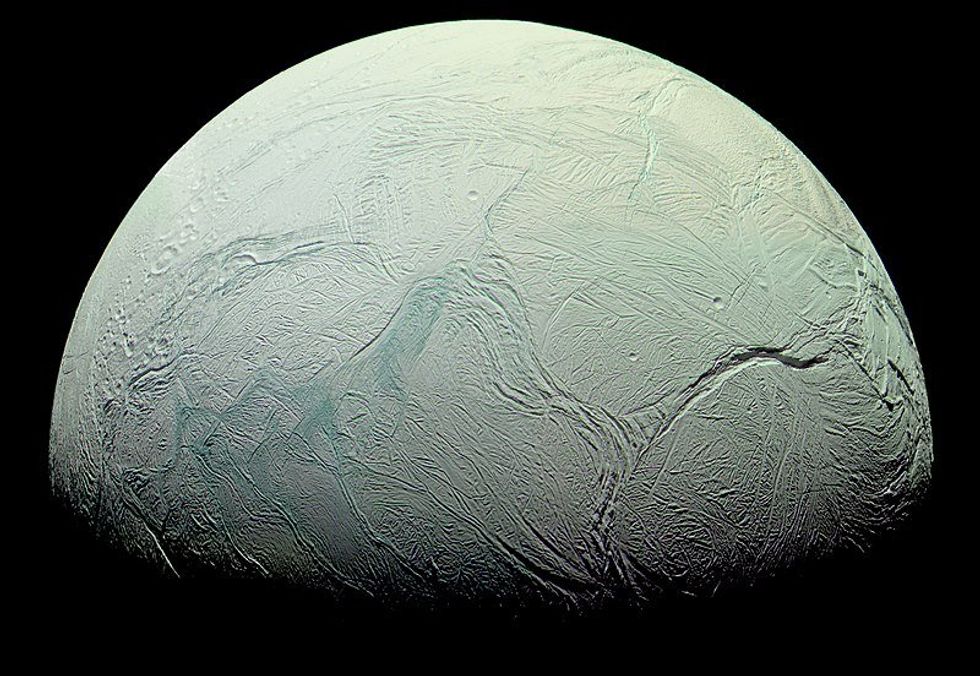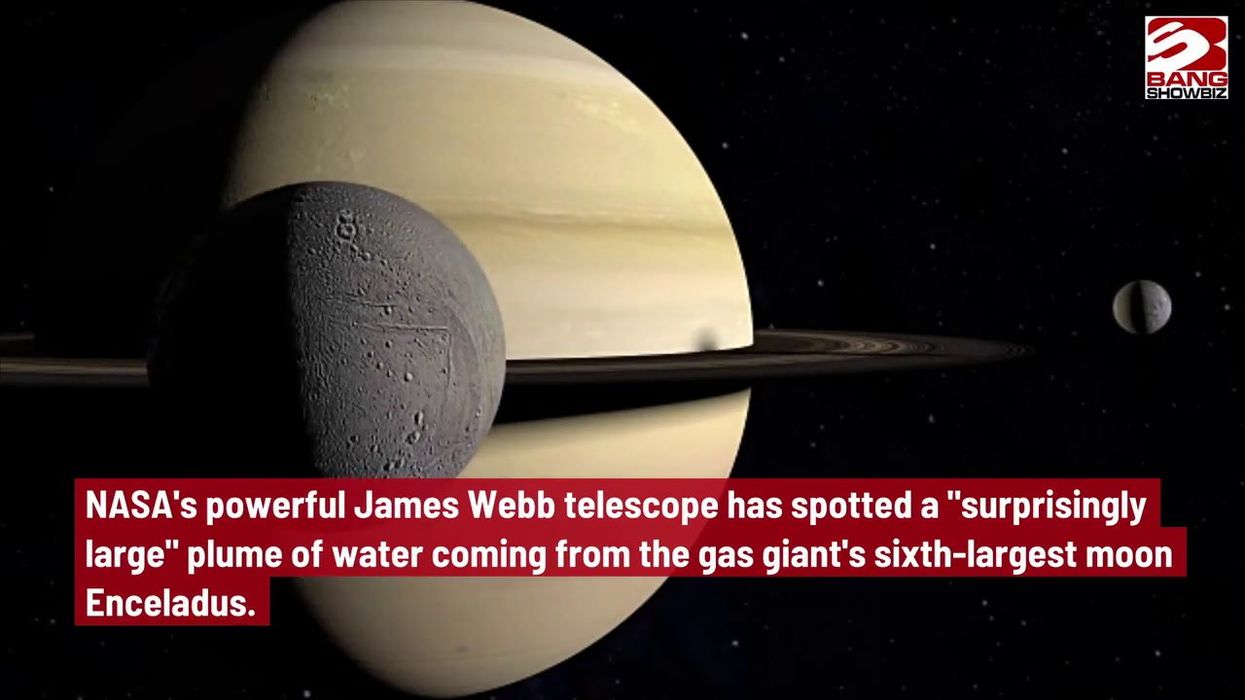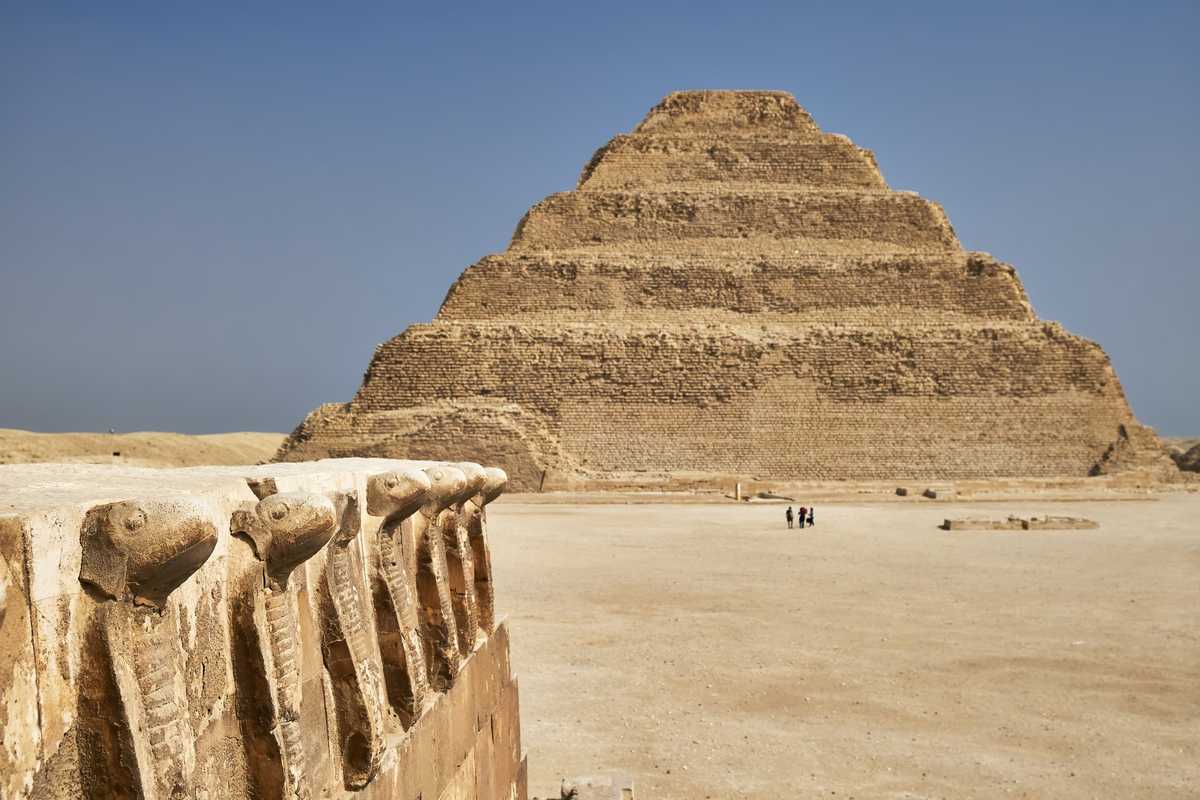Harry Fletcher
Jun 02, 2023
Aliens could be hiding on Saturn moon Enceladus
content.jwplatform.com
Dramatic explosions on the surface of one of Saturn's moons have been observed, and it could change the way scientists approach the search for life in the universe.
Saturn's ice-covered moon Enceladus has been the subject of attention from astronomers for decades after plumes of water vapor were observed erupting from its surface 20 years ago by the Cassini spacecraft.
Now, the biggest plume yet has been spotted by the James Webb Space Telescope and it measures a massive 10,000 kilometers in length.
Incredibly, the plume emitting from the geyser on the surface measures 20 times the size of the moon itself, and it indicates that there’s more to Enceladus than previously thought.
Sign up to our free Indy100 weekly newsletter
Planetary scientist Geronimo Villanueva of NASA's Goddard Space Flight Center said: "When I was looking at the data, at first, I was thinking I had to be wrong, it was just so shocking to map a plume more than 20 times the diameter of the moon.
"The plume extends far beyond what we could have imagined."

Instead of solid ice, the size of the plume shows us that there’s a liquid ocean under the surface. It’s kept warm enough to avoid freezing due to the movement that results from the gravitational pull of Saturn.
As ever, the existence of liquid water suggests that there’s the possibility of life existing there, and it's encouraging news for authors of the study accepted in Nature Astronomy.
"The orbit of Enceladus around Saturn is relatively quick, just 33 hours. As it whips around Saturn, the moon and its jets are basically spitting off water, leaving a halo, almost like a donut, in its wake," Villanueva said. "In the Webb observations, not only was the plume huge, but there was just water absolutely everywhere."
It remains one of the most interesting bodies being studied in the solar system, as geochemist Christopher Glein of the Southwest Research Institute.
“Enceladus is one of the most dynamic objects in the Solar System and is a prime target in humanity's search for life beyond Earth," geochemist Christopher Glein of the Southwest Research Institute said.
"In the years since NASA's Cassini spacecraft first looked at Enceladus, we never cease to be amazed by what we find is happening on this extraordinary moon."
Have your say in our news democracy. Click the upvote icon at the top of the page to help raise this article through the indy100 rankings.
Top 100
The Conversation (0)














